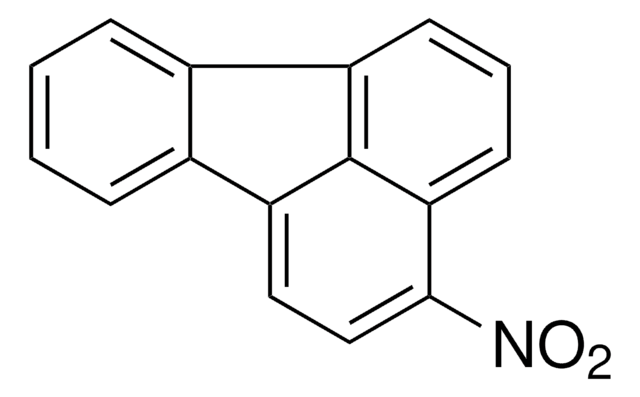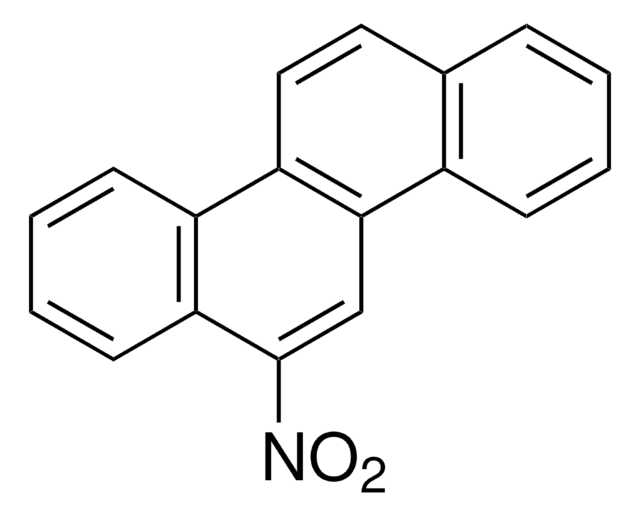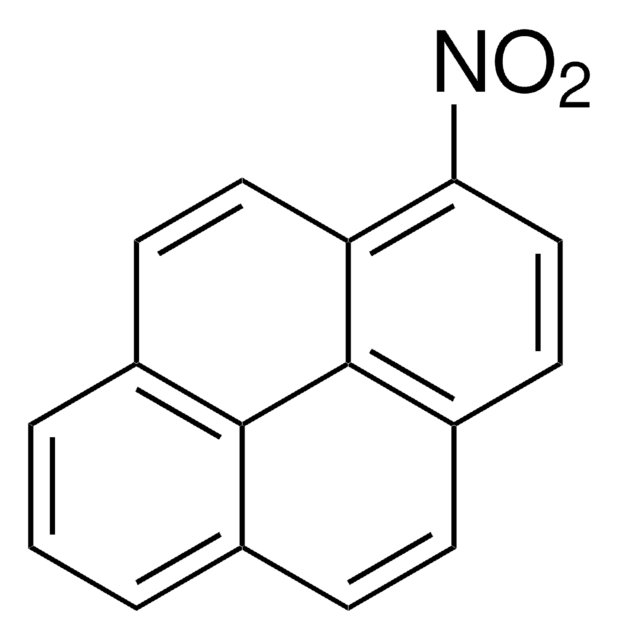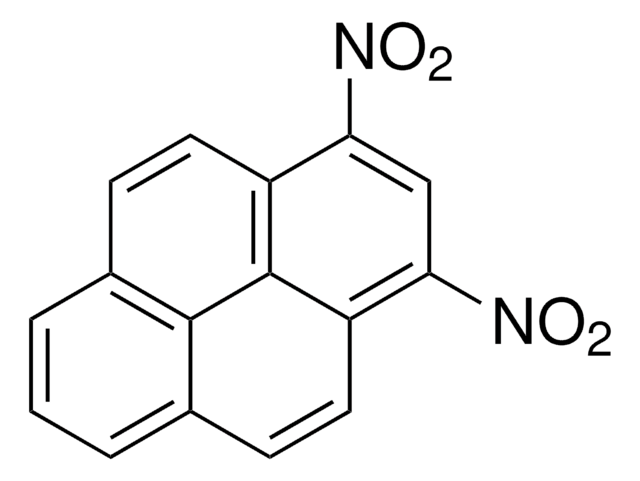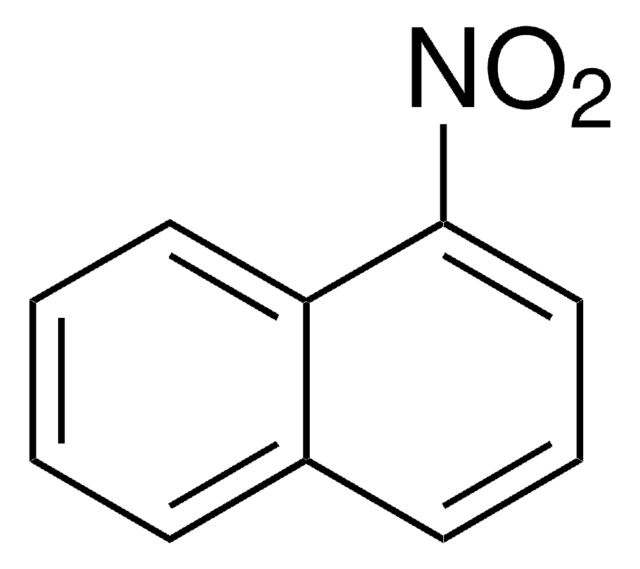BCR311
6-Nitrobenzo[a]pyrene
BCR®, certified reference material
Sign Into View Organizational & Contract Pricing
All Photos(1)
About This Item
Empirical Formula (Hill Notation):
C20H11NO2
CAS Number:
Molecular Weight:
297.31
Beilstein:
2472924
MDL number:
UNSPSC Code:
41116107
PubChem Substance ID:
NACRES:
NA.24
Recommended Products
grade
certified reference material
Agency
BCR®
manufacturer/tradename
JRC
technique(s)
HPLC: suitable
gas chromatography (GC): suitable
format
neat
storage temp.
2-8°C
SMILES string
[O-][N+](=O)c1c2ccccc2c3ccc4cccc5ccc1c3c45
InChI
1S/C20H11NO2/c22-21(23)20-16-7-2-1-6-14(16)15-10-8-12-4-3-5-13-9-11-17(20)19(15)18(12)13/h1-11H
InChI key
NMMAFYSZGOFZCM-UHFFFAOYSA-N
General description
6-Nitrobenzo[a]pyrene belongs to the class of nitrated-polycyclic aromatic hydrocarbons, found to be persistent in the environment. It is produced from direct sources such as diesel, gasoline exhaust and by the gas-phase reactions of polycyclic aromatic hydrocarbons (PAHs) with oxides of nitrogen.
Analysis Note
For more information please see:
BCR311
BCR311
Legal Information
BCR is a registered trademark of European Commission
Storage Class Code
11 - Combustible Solids
WGK
WGK 3
Choose from one of the most recent versions:
Certificates of Analysis (COA)
Lot/Batch Number
Sorry, we don't have COAs for this product available online at this time.
If you need assistance, please contact Customer Support.
Already Own This Product?
Find documentation for the products that you have recently purchased in the Document Library.
B S Hass et al.
Mutation research, 171(2-3), 123-129 (1986-08-01)
The mononitro-substituted isomers of benzo[a]pyrene (B[a]P), 1-, 3- and 6-nitrobenzo[a]pyrene (NB[a]P), are environmental pollutants and are metabolized to mutagens in Salmonella by rat-liver homogenate postmitochondrial supernatant (S9) fractions. In this study, activation of these compounds to mutagens was investigated using
C R Raha et al.
Toxicology letters, 37(3), 229-233 (1987-08-01)
6-Nitrobenzo[alpha]pyrene (6-NBaP) occurs in our environment. Since human exposure to environmental contaminants may occur via the inhalation route, we examined the metabolites of 6-NBaP formed in lung preparations, and compared the metabolite profile to that which was found with liver.
C Raha et al.
Research communications in chemical pathology and pharmacology, 58(1), 63-74 (1987-10-01)
6-Nitrobenzo (a) pyrene (6-NBaP) is an environmental contaminant. In bacterial mutagenesis assays, 6-NBaP requires rat liver S9 enzymes for its activity. Chemical characterization of metabolites of 6-NBaP produced by male rat liver microsomes showed them to be ring-hydroxylated (both mono-
R C Garner et al.
Cancer research, 45(12 Pt 1), 6225-6231 (1985-12-01)
Human colon and bronchus tissue explants were incubated with either [3H]benzo(a)pyrene ([3H]BP) or [3H]-6-nitrobenzo(a)pyrene ([3H]-6-NBP). The total percentage of metabolism of BP and 6-NBP was, respectively, 8-59% and 18-41% in bronchus and 11-23% and 36-50% in colon. A product tentatively
C W Sheu et al.
Food and chemical toxicology : an international journal published for the British Industrial Biological Research Association, 32(7), 611-615 (1994-07-01)
The transforming activities of four polycyclic aromatic hydrocarbons and six of their nitro-derivatives were studied using BALB/3T3 clone A31-1-1 cells in the absence of exogenous metabolic activation. Each compound was assayed two to four times to its maximal level of
Our team of scientists has experience in all areas of research including Life Science, Material Science, Chemical Synthesis, Chromatography, Analytical and many others.
Contact Technical Service